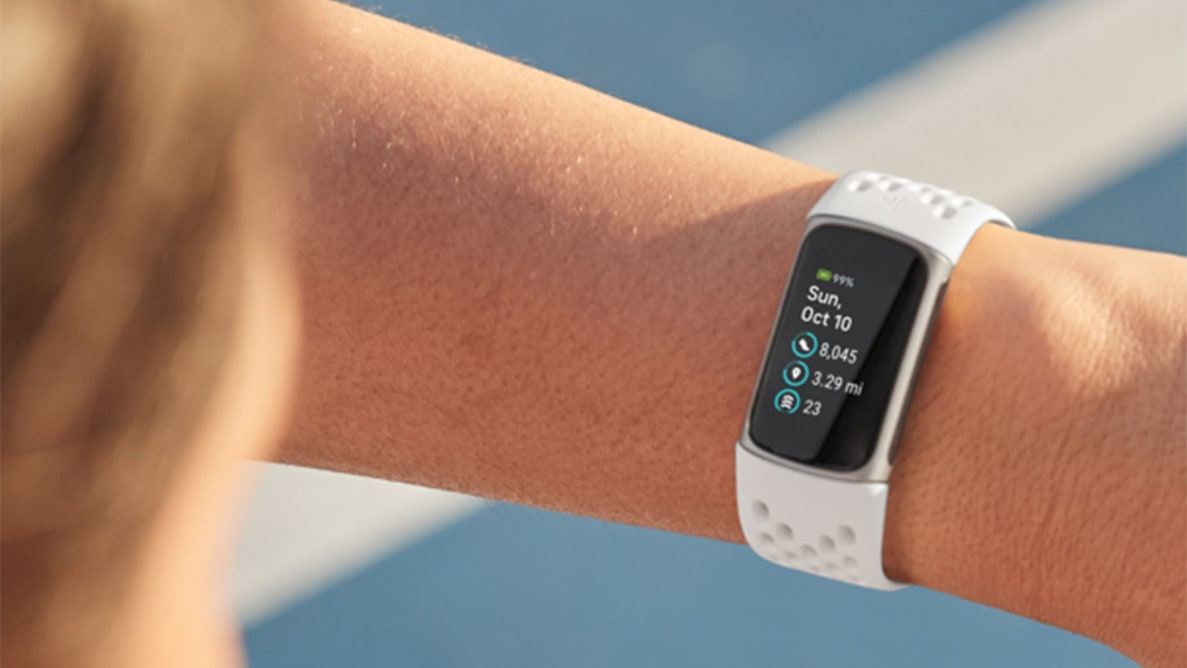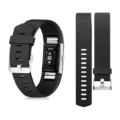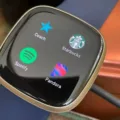Fitbit is a popular fitness-tracking device that has revolutionized the fitness industry. It is a device that helps track your daily activities such as steps taken, calories burned, and sleep patterns. However, there are times when your Fitbit device may turn off, leaving you wondering what went wrong. In this article, we will discuss some of the reasons why your Fitbit device may turn off and how to fix the issue.
The first reason why your Fitbit device may turn off is due to a drained battery. If your device has been in use for an extended period, the battery may be low, causing it to turn off. To fix this issue, you need to charge your device. Connect your device to a charger and wait for it to charge fully. Once it is fully charged, turn it on, and it should work correctly.
Another reason why your Fitbit device may turn off is due to a problem with charging. If your device is not charging correctly, it may turn off. To fix this issue, ensure that you are using the correct charger for your device. Also, check the charging port and make sure it is clean and free from debris. If the problem persists, try using a different charger.
Sometimes, your Fitbit device may turn off due to a software error. This can occur when the device is not synced correctly. To fix this issue, try syncing your device with your smartphone or computer. Ensure that your device is connected to the internet and that the Fitbit app is up to date. If the problem persists, try resetting your device.
Your Fitbit device may also turn off if it is overheating. This can occur when you wear your device for an extended period, especially during intense activities. To fix this issue, take a break from wearing your device and let it cool down. You can also adjust the settings on your device to reduce the screen brightness and conserve the battery.
There are several reasons why your Fitbit device may turn off. It could be due to a drained battery, a problem with charging, a software error, or overheating. By following the steps outlined above, you can fix the issue and get your device back to working correctly. Remember to keep your device charged, synced, and free from debris to avoid any further issues.

Troubleshooting Fitbit Not Turning On
A Fitbit device may not turn on due to various reasons. Some of the common reasons are:
1. Drained battery – If you have not charged your Fitbit device for a long time, the battery may be completely drained, and the device won’t turn on.
2. Charging issue – Sometimes, the Fitbit charger may not work correctly, or the charging port of the device may be damaged, causing the device not to turn on.
3. Software error – A software error may cause your Fitbit device not to turn on. This can happen when the device’s software is outdated, or there is a glitch in the system.
4. Water damage – If your Fitbit device has come into contact with water, it may not turn on. Water damage can cause severe damage to the device’s internal components, preventing it from functioning correctly.
5. Mechanical damage – Accidental drops or impacts can cause mechanical damage to the Fitbit device, leading to malfunction or failure to turn on.
If your Fitbit device is not turning on, you can try charging it, resetting it, or contacting Fitbit support for further assistance.
Unexpected Fitbit Shutdown: Causes and Solutions
There are several reasons why a Fitbit may suddenly turn off. One common reason is that the battery may be low and needs to be charged. It is recommended to charge your Fitbit regularly to prevent it from turning off unexpectedly. Another reason could be that the data is not syncing properly between the device and the Fitbit app. This can be resolved by ensuring that Fitbit is connected to the app and that the app is up to date.
Another possible reason for the sudden shut off of a Fitbit could be overheating. This can be caused by wearing the device for extended periods of time or exposing it to high temperatures, such as leaving it in a car on a hot day. If this is the case, it is recommended to remove the Fitbit and allow it to cool down before using it again.
If none of these solutions work, it may be necessary to reset the device. This can be done by following the instructions provided by Fitbit’s customer support. Taking a break from wearing the Fitbit for a few hours or even a day may also help resolve the issue.
Troubleshooting a Black Screen on a Fitbit
There could be several reasons why your Fitbit screen has gone black. One of the most common causes is that the ambient light sensor, which is located as a black dot on the side of your Fitbit device, is blocked. This causes your screen to go dark automatically. Another reason could be that the battery of your Fitbit has run out of power. In this case, you can try charging your device with the charger provided with it. It is also possible that the display settings of your Fitbit have been set to a low brightness level, causing your screen to appear black. To fix this, you can go to your Fitbit device’s settings and adjust the brightness level. If none of these solutions work, it is recommended to contact Fitbit customer support for further assistance.
Troubleshooting Fitbit Inspire Not Turning On
If your Fitbit Inspire isn’t turning on, it could be due to several reasons. Here are some possible causes:
1. Battery: The most common reason for a Fitbit Inspire not turning on is a drained battery. If the battery is low, it may not have enough power to turn the device on. In this case, try charging the tracker for at least two hours and then try turning it on again.
2. Loose connection: Another reason for the tracker not turning on could be a loose connection between the charging cable and the device. Make sure that the charging pins on the cable are aligned with the charging contacts on the back of the tracker and that the connection is secure.
3. Damaged charging cable: If the charging cable is damaged, it may not be able to charge the device properly. Check for any signs of wear and tear on the cable, such as frayed wires or a damaged connector. If it’s damaged, you may need to replace it.
4. Software issues: Occasionally, software issues can cause the Fitbit Inspire to not turn on. In this case, you can try resetting the device by pressing and holding the button on the side of the tracker until the Fitbit logo appears. If this doesn’t work, you may need to contact Fitbit support for further assistance.
By considering these possible causes, you should be able to troubleshoot and resolve the issue with your Fitbit Inspire not turning on.
Conclusion
A Fitbit device may turn off due to various reasons such as low battery, syncing issues, overheating, or a software error. It is essential to troubleshoot the problem by charging, resetting, or taking a break from wearing it. Additionally, a blocked ambient light sensor or incorrect brightness settings can also cause the device to turn off. If the tracker is not turning on, restarting it by plugging the charging cable into a USB port and attaching it magnetically to the tracker’s port should resolve the issue. By taking these steps, you can ensure that your Fitbit device functions properly, and you can continue to track your fitness goals and progress.







